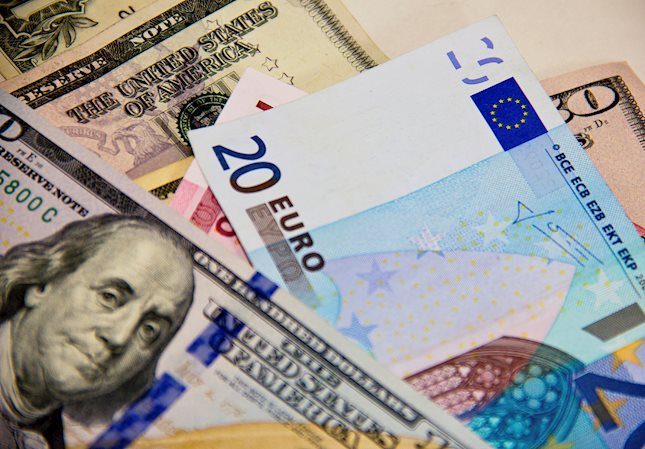Market focus has shifted from tourism, Suez Canal revenues to declining FX proceeds from LNG exports. Hydrocarbon exports fell by 60% y/y in FY24; we estimate foregone revenue at USD 1bn a month. We revise our C/A deficit forecasts as the hydrocarbon trade balance has swung to a deficit, Standard Chartered economists Carla Slim and Bader Al Sarraf note.
FX liquidity concerns persist, notwithstanding improvement
“Egypt went from being a net hydrocarbon importer to a net hydrocarbon exporter in 2020-23. This was driven by a sharp rise in LNG exports (largely to Europe) on expanded domestic LNG output from its Al Zohr field on the East Mediterranean. Still, Egypt relies on hydrocarbon imports, including from Israel, for domestic consumption, and exports any remainder after meeting domestic demand.”
“We estimate foregone LNG export revenue at USD 1bn per month this year, as the regional conflict exacerbates the pressure on Egypt’s LNG trade, via more volatile pipeline imports from Israel. LNG exports began declining in early 2023 (see Figure 2) and have come under further pressure in 2024. Hydrocarbon exports were down by 60% y/y to USD 5.7bn in FY24 (year ending June 2024), turning the hydrocarbon trade balance to a USD 7.6bn deficit from a USD 0.4bn surplus a year earlier. Lower LNG exports and a recovery in imports on improved FX availability led to a widening of the current account (C/A) deficit to USD 20.8bn in FY24 from USD 4.7bn in FY23. As such, we raise our FY24 and FY25 C/A deficit forecasts to 7.0% (-3.0%) and 4.5% of GDP (-3.0%), respectively.”
“Market concerns related to Egypt’s FX liquidity have turned to its widening hydrocarbon trade deficit, in addition to losses in Suez Canal revenues (-24.3% y/y in FY24), although tourism revenue has held up (+5.5% y/y). Tourism revenues reached USD 14.4bn in FY24, from the prior peak of USD 13.6bn; however, the widening of the conflict in the Middle East in recent days could still pose downside risk to tourism. Suez Canal revenues are also likely to decline further (down to USD 6.6bn in FY24 from a peak of USD 8.7bn in FY23); President Sisi recently stated Egypt faces Suez Canal losses of up to USD 6bn YTD.”
Information on these pages contains forward-looking statements that involve risks and uncertainties. Markets and instruments profiled on this page are for informational purposes only and should not in any way come across as a recommendation to buy or sell in these assets. You should do your own thorough research before making any investment decisions. FXStreet does not in any way guarantee that this information is free from mistakes, errors, or material misstatements. It also does not guarantee that this information is of a timely nature. Investing in Open Markets involves a great deal of risk, including the loss of all or a portion of your investment, as well as emotional distress. All risks, losses and costs associated with investing, including total loss of principal, are your responsibility. The views and opinions expressed in this article are those of the authors and do not necessarily reflect the official policy or position of FXStreet nor its advertisers. The author will not be held responsible for information that is found at the end of links posted on this page.
If not otherwise explicitly mentioned in the body of the article, at the time of writing, the author has no position in any stock mentioned in this article and no business relationship with any company mentioned. The author has not received compensation for writing this article, other than from FXStreet.
FXStreet and the author do not provide personalized recommendations. The author makes no representations as to the accuracy, completeness, or suitability of this information. FXStreet and the author will not be liable for any errors, omissions or any losses, injuries or damages arising from this information and its display or use. Errors and omissions excepted.
The author and FXStreet are not registered investment advisors and nothing in this article is intended to be investment advice.
Recommended content
Editors’ Picks

EUR/USD extends recovery beyond 1.0400 amid Wall Street's turnaround
EUR/USD extends its recovery beyond 1.0400, helped by the better performance of Wall Street and softer-than-anticipated United States PCE inflation. Profit-taking ahead of the winter holidays also takes its toll.

GBP/USD nears 1.2600 on renewed USD weakness
GBP/USD extends its rebound from multi-month lows and approaches 1.2600. The US Dollar stays on the back foot after softer-than-expected PCE inflation data, helping the pair edge higher. Nevertheless, GBP/USD remains on track to end the week in negative territory.

Gold rises above $2,620 as US yields edge lower
Gold extends its daily rebound and trades above $2,620 on Friday. The benchmark 10-year US Treasury bond yield declines toward 4.5% following the PCE inflation data for November, helping XAU/USD stretch higher in the American session.

Bitcoin crashes to $96,000, altcoins bleed: Top trades for sidelined buyers
Bitcoin (BTC) slipped under the $100,000 milestone and touched the $96,000 level briefly on Friday, a sharp decline that has also hit hard prices of other altcoins and particularly meme coins.

Bank of England stays on hold, but a dovish front is building
Bank of England rates were maintained at 4.75% today, in line with expectations. However, the 6-3 vote split sent a moderately dovish signal to markets, prompting some dovish repricing and a weaker pound. We remain more dovish than market pricing for 2025.

Best Forex Brokers with Low Spreads
VERIFIED Low spreads are crucial for reducing trading costs. Explore top Forex brokers offering competitive spreads and high leverage. Compare options for EUR/USD, GBP/USD, USD/JPY, and Gold.